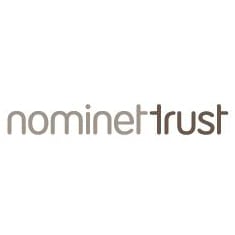‘T he idea is to try to give all of the information to help others to judge the value of your contribution; not just the information that leads to judgment in one particular direction or another’ – from Cargo Cult Science, a commencement address by Richard Feynman. This is the point of departure for today’s guest contributor, Ed Anderton, Development Researcher at Nominet Trust. It turns out that we are at the point of being able to consider “all of the information,” and, for sure, tech is the enabler; however Ed also gives examples of the behaviors and data practices that will have the greater hand in driving better inquiry; they have a lot to do with sharing information and sharing scrutiny.
he idea is to try to give all of the information to help others to judge the value of your contribution; not just the information that leads to judgment in one particular direction or another’ – from Cargo Cult Science, a commencement address by Richard Feynman. This is the point of departure for today’s guest contributor, Ed Anderton, Development Researcher at Nominet Trust. It turns out that we are at the point of being able to consider “all of the information,” and, for sure, tech is the enabler; however Ed also gives examples of the behaviors and data practices that will have the greater hand in driving better inquiry; they have a lot to do with sharing information and sharing scrutiny.
…
I find I’m often drawn back to Cargo Cult Science, the commencement address Feynman gave at CalTech in 1974. In it, he not only sets out the fundamentals of the scientific method with jocular eloquence, but shares some of the distortions and departures he has observed, even in the supposedly ‘pure’ environment of basic research. The more recent work of Ben Goldacre and others indicates that in the 40 years since, the situation has not improved.
For those of us in the social sector, the implication is clear: if even our most ‘objective’ disciplines are routinely led astray, what chance do investors and organisations have of making more rational decisions, operating as we do in a maelstrom of competing theories of change backed by partial evidence? It is surely unavoidable that we will fall prey to bias, veer towards the most positive interpretation, and fail to learn from (or even about) failure.
The single most powerful mechanism to counteract such frailties is to “try to give all the information,” and its reciprocal: judging the value of the information given by others, as consistently, logically – scientifically – as possible. Thankfully, our technology has been making this ever easier to achieve, and working for the Nominet Trust, I have had the luxury of specifically exploring and supporting our shared progress.
Over the past couple of years we’ve commissioned some of the best minds in the field to produce ‘State of the Art’ reviews on Open Data, and Big Data: guides for social organisations to orientate themselves, and get started. These reviews set out ways in which the social sector can benefit from having a better, more scientific basis for amassing and making sense of data: improved insight into the nature and scope of social challenges; integrating services and facilitating collaboration; quantifying and communicating impact.
We’re improving our internal information sharing and analysis, to facilitate every aspect of our operations: applications, supporting our portfolio of projects, evaluation, partnerships and ‘in-house’ projects such as Social Tech Guide. The latter is a directory of the most inspiring social tech projects we can find from around the world, shared via a website but also as a CSV download.
We’re also working with Indigo Trust, NESTA, Big Lottery Fund and others in the UK on 360giving, encouraging UK grant-makers to publish open data about the projects they support: we’ve recently committed to updating our own open data after every funding round.
For all the effort we’re currently expending to ‘get the data out the door’, sharing basic information will be the easy part: the openness required for us to make consistently ‘valuable’ judgements based on this information, and act on them, implies a more profound cultural shift.
Digital tools can help, hence our support for DataUnity, an open/linked data analysis and visualisation platform designed specifically for social organisations, and Global Giving’s storytelling-grantwriting programme, developing sophisticated analysis of unstructured narrative data.
Whichever tools and processes we adopt, the value of the whole endeavour will persistently depend on our willingness to scrutinise, and to continually challenge ourselves to ask better questions. An ongoing commitment to shared information and shared scrutiny presents our best chance of moving closer towards the effectiveness, wisdom and honesty Feynman exemplified and advocated. The alternative is to risk, despite our best efforts and intentions, fooling ourselves, and each other.
…
ed.anderton@nominettrust.org.uk
